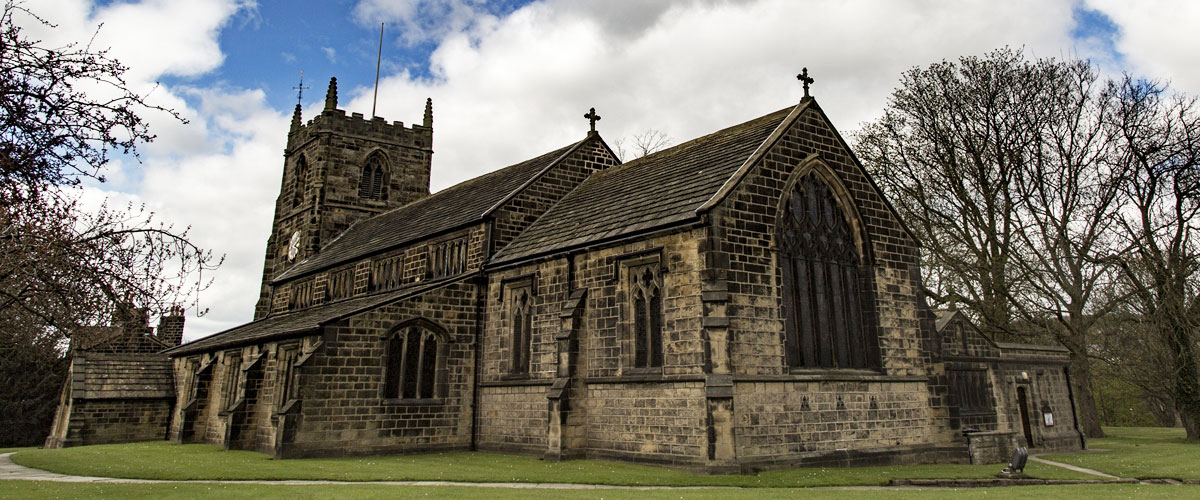God has been doing a wonderful work in our time of restoring the gift of the apostolic. It is not as though this were a new office in the church, (indeed, it is as old as the church itself!), but it is one that has often been neglected or misunderstood over the ages. In this article, we review how God has faithfully used men throughout history to bring much-needed correction and health to the church, even in its darkest hours.
The lack of understanding around this vital office.. has served to emphasise its importance in promoting a healthy church
Scripture has primacy over church practice, tradition and history. There is no doubt that, after the apostolic era of the 1st century or so, the church drifted away from many Scriptural foundations. Some of these foundations were only restored centuries later. Some examples include adult baptism, baptism in the Holy Spirit, the priesthood of all believers, salvation by faith alone, etc. The absence of such doctrines from most of the church during those centuries is not an argument against the importance of such doctrines, but rather an indictment of the state of the church. The same can be said of the role of the apostolic. The lack of understanding around this vital office within the church has served to emphasise its importance in promoting a healthy church, as we will see.
The Role of The Apostolic
It is possible to see the existence and role of apostles throughout church history, even if the term “apostle” was not always used or properly understood. In order to recognise the influence of these apostles, it may be helpful to briefly describe what the role of an apostle is, as outlined in Scripture. Apostles ensure that local churches are building on the foundation of Christ (Ephesians 2:20). They do this by assessing whether or not churches are lining up with the truth revealed in Scripture, both in their teaching and in their practice. We see the practical outworking of this in Scripture in the letters that the apostles addressed to the local churches. In each one, they are bringing correction to the “building” that local elders are doing, thus ensuring that the house is being built according to the biblical specification.
These men endeavoured to build the church on the foundation of Christ and in line with Scripture, sometimes at the cost of their lives.
Throughout history, individuals and movements have arisen which have carried the true gospel (to a greater or lesser degree) and have fought against false doctrine and false practices. These men endeavoured to build the church on the foundation of Christ and in line with Scripture, sometimes at the cost of their lives. Although the leaders of such movements were imperfect in their lifestyles and doctrines (as are all men, including the original apostles), we can easily recognise them as the apostolic voices of their time.
After The Original Apostles
With the death of the original apostles (the last being John in the early second century) came an issue of authority. The apostles had carried decisive authority but they were no longer around. During this time, men of various calibres circulated writings of various standards. Such men were Clement (possibly 3rd bishop of Rome), Ignatius (bishop of Antioch) and Polycarp (disciple of John). Whilst the original apostles had the authority that came with being hand-picked by Jesus (though we read in the New Testament that even their authority was questioned at times), the difficulty lay in “passing on the baton” to a second and third generation of apostles.
The debate at the time was not whether or not there were still apostles, but rather who the genuine apostles were.
Individuals arose claiming to be apostles, many teaching heresies such as Gnosticism. The debate at the time was not whether or not there were still apostles, but rather who the genuine apostles were. As it turned out, there were a number of genuine apostles. Apart from the ones already mentioned, there were the likes of Iranaeus, Tertullian, Cyprian, Clement of Alexandria, and Origen. Between 180 and 250 AD in particular, they fought for doctrinal orthodoxy, for the recognition of the New Testament canon and, interestingly, the recognition of true apostles.
In an attempt to identify who the true apostles were, Iranaeus made lists of the succession of the leaders of the most significant churches, including Rome. Unfortunately, this led to the doctrine of apostolic succession, whereby the Pope laid claim to be a direct spiritual successor to Peter. Whilst Protestants would reject this thinking, it is interesting that the Catholic Church has always believed in the existence of and need for an apostle, embodied in the Pope.
Lines Blurred Between Church and State
Once Constantine made the church an organ of state, the lines between church and state became blurred. Secular and spiritual offices overlapped and the church began to be ruled not according to Scripture, but in a manner which reflected the way in which the Roman Empire was being ruled. This led to the primacy of the bishop of Rome, who later claimed the title of Pope. Once the church failed to recognise true apostolic gifts, she drifted into unbiblical practices of government and then quickly into doctrinal error.
There were always those who fought for truth. For example, Northern Italy and Southern France were a breeding ground for good Scriptural teaching during the early centuries, and the diocese of Milan was independent of the bishop of Rome until the 11th Century. Such men as Ambrosius, Rufinus and Laurentius attempted to build the churches over which they had influence according to Scripture. Claudius of the 9th Century opposed the Pope, saying, “..he could only call himself apostolic who kept the apostolic teaching”.
However, whilst these and many other men fought for reform within the church, on the whole they were unsuccessful in spreading their beliefs outside of their immediate spheres of influence – a principle we see in Paul’s writings where he talks about his own field of influence.
Groups outside of the Catholic Church also rose up from time to time, including the Waldenses, led by Peter Waldo in the 12th Century. Though they were persecuted by the church and are little known today, they had a profound impact in Southern Europe, and then into France and Eastern Europe, where they influenced the atmosphere in which the Reformation would begin.
The Reformation
Subsequent to this, men such as John Wycliffe (the “Morning-star of the English reformation”) arose, who had a profound influence on John Hus. Hus was martyred by the Catholic Church for his teachings and it was he who prophesied the coming of another man 100 years later who would complete the work that he could not. This was to be Martin Luther.
The many influences of the Reformation such as Luther, Calvin, Zwingli and others brought the church into greater health and restored essential doctrines that had been forsaken.
Apostles By Other Names
Later still were the leaders of the Moravians, the Wesleys, Whitefield and many other heroes of the faith who helped shape the church in the West and/or to bring revival.
Over the centuries, there have also been many ‘missionaries’, some better known than others, such as Hudson Taylor, who traveled the world planting churches – apostles by another name, surely.
All of these men could be considered apostles, even if they did not use this phrase themselves. It is most likely that God raised them up in times when the church was so unhealthy and so far from truth that they were restoring revelation on a much more basic level.
“If I have seen further, it is by standing on the shoulders of giants.”
There isn’t space to detail the many other individuals that God used over the centuries to bring health to the church. Yet as the church experienced revivals and renewals over the last 100 years or so (from Asuza St to the Charismatic renewal of the 1970’s and 80’s), there has been an increasing awareness of biblical teachings on the work and gifts of the Holy Spirit. With this has come an understanding of the office and role of the apostle. This is not new – it is the restoration of an old truth. It is a truth that we have because of the work done by many heroes of the faith over the centuries. As the saying goes, “If I have seen further, it is by standing on the shoulders of giants.”
The Church is Built on Apostles & Prophets
I think it is quite clear, even from a brief overview of church history, that the church was built on the foundations of the apostles and prophets, and that apostles have been sent by Jesus ever since to help the church grow into maturity and unity (Ephesians 4:11-13). I believe it is fair to say that, should you look into the times and places where the church has moved into greater health, you will find apostles. Conversely, where it has declined in health or fallen away from the biblical model, you will find the apostolic being rejected.











